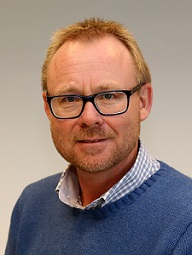HoD News - 20 December 2019

Dear colleagues,
One more year has gone by and I would like to take this opportunity to thank you all for your work and contributions to our teaching and our education programmes, research, administration, knowledge exchange, external research funding attraction etc. Your efforts and your support are much appreciated. Thank you.
It has been yet another busy year with progress along several dimensions, even though the pace of changes and new developments is slower than I would wish.
We have welcomed many new colleagues at our department, and we have said goodbye to others. This is the dynamics characterizing a good department.
With the Finance Act 2020 (Finansloven), temporary certainty has been ensured regarding the financial situation of the department and the business and social sciences university sector as a whole. I am very happy about this outcome. However, the agenda of this year’s Finance Act negotiations has also shown that we are fragile to external shocks and the governmental priorities in the university sector. If the initially suggested savings had not been abolished, it would have implied that our department would lose revenues of approximately 12 million DKK annually, and in the short term this would potentially imply the loss of a two-digit number of positions at our department. This shows that job security in the university sector shouldn’t be taken as given.
During 2020 we will have a number of themes on the agenda: The final adjustments of the section organization within the department, implementation of the new norm system, implementation of the APV action plan to avoid and handle stress amongst employees as well as rolling out a plan for employee recognition in various dimensions. Regarding our education programmes, a new oecon study curriculum will be approved in the early spring in order to further profile our teaching portfolio, and the possibility of including elective course portfolios in psychology and political science on the 5th semester of the HA in collaboration with the PS and PSYK departments is underway. Also, work has been initiated to transform and revitalize our life-long-learning (EVU) education programmes, HD and MBA, in order to make these programmes more flexible and to increase focus on student recruitment.
Regarding the work with the section organization, the two economics sections “Industrial Organization and Trade” and “Labour and Public Policy” will merge on 1 March 2020 under the name “Economics”. I am very happy to announce that Professor Bo Sandemann Rasmussen has agreed to become the new head of section. I appreciate the support of Bo to lift this important management task and to take responsibility for the future development of the section and the department. At this occasion, I would also like to congratulate Professor Nabanita Datta Gupta for becoming a member of the Danish Economic Councils, and I would like to thank her for the work she has done as a section head for the LPP-section the past years. I would also like to thank Professor Tor Eriksson, who has been the section head of the IOT-section and member of the management team for several years. Thank you both of you for your work and support in the management. Since Bo will now become head of section, a new director of studies for oecon has to be appointed by 1 March 2020, where the work with the new oecon study curriculum has been finalised.
Regarding the implementation of the new norm system, we have now received a lot of input following the hearing in the sections, Departmental Forum, and the LSU. In the management team, we listen to your views, and in early 2020 we will send out a final norm document which accounts for many of the views and concerns that we have identified during our discussions. I would like to thank you for your input in this process. I acknowledge that changing structures requires articulation and dialogue, and this will be ongoing after the new system has been introduced on 1 February 2020. Nothing is carved in granite, and we have to learn from our experience and make adjustments where necessary. This includes possible adjustment of prices; a balanced system depends on the staffing and available resources since the tasks to be lifted remain rather constant. I expect that you will participate in the process of implementing the new norm system in a constructive way.
I wish you and your families a Merry Christmas and a Happy New Year.
Niels Haldrup